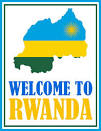This is a guest post by Yeze.
The 10th of Tevet is traditionally a day of mourning within Orthodox Judaism, encompassing the memory of the Babylonian siege of Jerusalem, the destruction of the Second Temple, and the tragedy of the Holocaust.
However, a group of Orthodox Jews in Melbourne have recently caused controversy by hosting a picnic on the 10th Tevet, and celebrating rather than fasting and mourning.
Whilst the offending video has since been removed from Youtube, celebrating on the 10th Tevet is not limited to Honk4Joy, although other Chabad rabbis have not grabbed the headlines for doing so.
Watch Chabad’s Ibiza-based rabbi Yoel Kraus celebrating the 10th Tevet with his family this year:
Why has the Chabad House rabbi in Ibiza escaped media attention whilst the Melbourne Jews have grabbed the headlines?
The Melbourne Jews in question were Lubavitcher meshichists who believe that the seventh and final Lubavitcher Rebbe Menachem Mendel Schneerson – who died in 1994 – was the Jewish Messiah. They belong to a Lubavitcher splinter group known as Honk4Joy, which seeks to follow Schneerson’s own teachings by proclaiming him to be the divine Moshiach throughout the world – to Jew and Gentile alike.
As a direct result of their actions on the 10th of Tevet, Melbourne’s Chabad Chief Rabbi Zvi Telsner condemned the meshichists who organised the picnic, calling on them to be ostracised from the Jewish community unless they sincerely repent, writing:
“I find it necessary to rule that until the perpetrators of these deeds stand before a Beis Din of three Rabbonim, and seek forgiveness and correction of that which they have done, they are to be ostracized by all members of the community. They cannot be counted as part of a minyan (for davening) or mezuman (for bentsching), and one may not answer Amen after their Brochos. They cannot be given a Aliyah to the Torah or honoured with any other Mitzvah (see Shulchan Oruch, Yoreh Deah Ch. 334 Para 2). Similarly, one should not speak to them or have any business dealings with them.”
Yet Rabbi Telsner himself is a Lubavitcher meshichist, signing a document calling for universal Jewish recognition of Schneerson as Messiah.
So why did Telsner ex-communicate the Honk4Joy meshichists?
According to Telsner, it was due to their disobedience to the rabbinical decree that 10 Tevet was a day of fasting. Yet in the video, you can clearly hear the Honk4Joy meshichists singing that Schneerson is “atzmus” – meaning the very essence of God. Telsner thus did not condemn Honk4Joy’s theology of a divine Messiah, but their disobedience of halakhah.
In other words, it was Honk4Joy’s lack of orthopraxy, rather than their unorthodox theology, that contradicted Judaism.
Yet when we turn to Messianic Jews who believe in Yeshua of Nazareth, this situation is reversed – orthopraxy (Torah observance) counts for nothing, it is the ‘heretical’ theology of worshipping Yeshua which is condemned.
The argument taking place amongst the Lubavitcher meshichists is the precise same argument which took place amongst the early Jewish Christians – how to interpret the Torah in the light of messianic redemption.
Paul of Tarsus (who identified publicly as a Pharisee even following his Road to Damascus experience) took the line that the Torah was given to lead them to the Messiah. In the same way, some Lubavitcher meshichists are also re-evaluating traditional Jewish practises and theology in the light of their revelations, as is evident in the meshichist ‘new theology for a new Torah’.
Following recent events in Ibiza and Melbourne, it seems the meshichists’ radical reinterpretation of Judaism is going global. How many other families celebrated on the 10th Tevet without posting a video of it on the internet?
Given the influence of meshichism within Chabad, and the prominent position of Chabad within the Jewish world, Orthodox Judaism can best be described as an ecumenical movement encompassing a wide range of theological beliefs about the Messiah and the godhead. Contemporary Judaism is certainly far more broad theologically than many anti-Messianic polemicists would suggest. (Ironically, Chabad has a heavy influence on anti-Messianic persecution in Israel, as if they were trying to eliminate any competition for a divine, death-defying Messiah).
Chabad are clearly worried about its perception within the wider Orthodox world of being neo-Christians, hence the unfair scapegoating of the Honk4Joy meshichists whilst hoping the case of Rabbi Yoel Kraus would go unnoticed.
Yet Chabad are setting a dangerous precedent for how those on the limits of traditional Jewish theology should be dealt with, especially as one day Chabad may find themselves excluded by Haredi Judaism.


